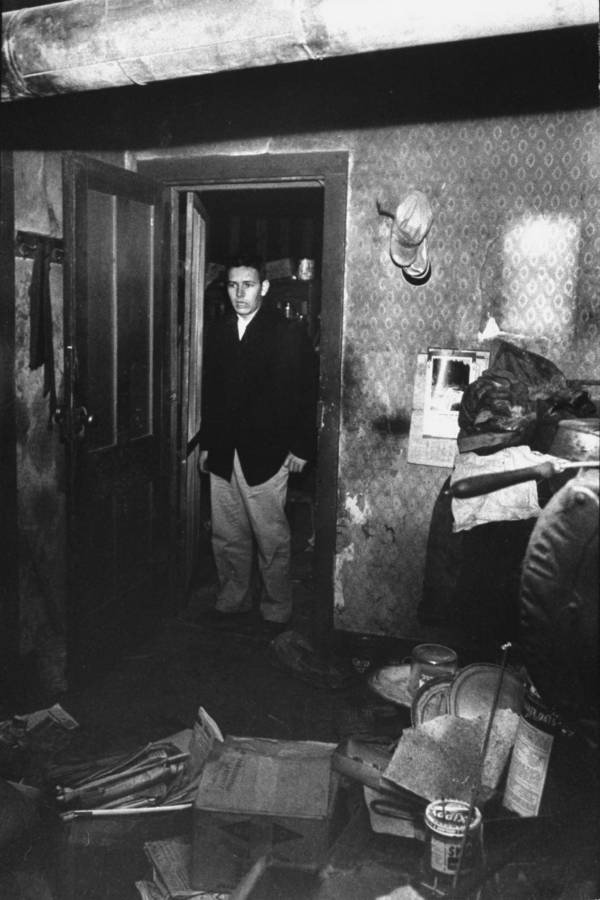Who was Ed Gein, the man whose chilling actions inspired some of the most iconic horror films in cinematic history? A bold statement that captures attention: Ed Gein’s crimes were not just acts of murder but a macabre exploration into the darkest recesses of human nature. His story continues to haunt us decades later, not merely because of its grotesque elements but due to the psychological complexity it unveils about humanity's capacity for depravity.
Born on August 27, 1906, near Plainfield, Wisconsin, Edward Theodore Gein grew up in isolation under the oppressive influence of his deeply religious mother, Augusta Gein. Her teachings instilled in him an extreme fear of women and the outside world, which many psychologists believe played a pivotal role in shaping his later behavior. After both parents passed away within two years of each other, leaving him alone on their decrepit farmstead, Gein spiraled further into darkness. It wasn’t until November 16, 1957, when authorities discovered his gruesome collection during a routine investigation following the disappearance of Bernice Worden, that the full extent of his atrocities came to light.
| Name | Edward Theodore Gein |
|---|---|
| Date of Birth | August 27, 1906 |
| Place of Birth | Near Plainfield, Wisconsin, USA |
| Family Background | Son of George and Augusta Gein; lived reclusively with his mother until her death |
| Career | Farm laborer; no formal education beyond high school |
| Notable Crimes | Murder, grave robbing, necrophilia, creation of artifacts from human remains |
| Arrest Date | November 16, 1957 |
| Legal Outcome | Found not guilty by reason of insanity; committed to Central State Hospital for the Criminally Insane |
| Death | July 26, 1984, at age 77, due to liver cancer |
| Reference Link | Getty Images - Ed Gein Stock Photos |
The evidence found at Gein's farmhouse was nothing short of nightmarish. Among the grisly discoveries were chairs upholstered with human skin, bowls crafted from skulls, masks made from faces, and even a belt fashioned out of nipples. These items were part of what investigators described as a shrine to death, reflecting Gein's twisted obsession with emulating femininity through these grotesque means. What makes his case particularly disturbing is how meticulously he documented his activities, almost as if preserving them for posterity.
Psychologists have long debated whether Gein suffered from severe mental illness or was simply a cold-blooded killer driven by compulsions. His trial revealed significant cognitive impairments, including schizophrenia and dissociative identity traits, yet there remains ambiguity regarding whether these conditions fully explain his monstrous deeds. Regardless, the impact of his actions extends far beyond legal proceedings—they serve as a grim reminder of the thin line between sanity and madness.
Ed Gein's legacy looms large over popular culture, influencing countless works ranging from literature to film. Characters like Norman Bates in Alfred Hitchcock's Psycho, Leatherface in The Texas Chain Saw Massacre, and Buffalo Bill in The Silence of the Lambs all draw inspiration directly or indirectly from his life story. While fictional portrayals often sensationalize aspects of his character for dramatic effect, they also highlight society's enduring fascination with understanding such extreme cases of criminal pathology.
In addition to inspiring artistic creations, Gein's crimes sparked broader discussions around forensic science and law enforcement practices. At the time of his arrest, techniques used to process crime scenes were rudimentary compared to today's standards. However, the meticulous documentation provided by local authorities laid groundwork for future advancements in this field. Moreover, public outcry following revelations about his activities prompted increased scrutiny over psychiatric evaluations in courtrooms across America.
Despite extensive media coverage and academic analysis devoted to studying Ed Gein, many questions remain unanswered. Why did someone seemingly ordinary commit such heinous acts? Could preventive measures have stopped him earlier? As technology evolves, perhaps new insights will emerge helping clarify these mysteries. Until then, however, we must confront the uncomfortable truth that sometimes evil resides closer than expected—even among those leading quiet lives hidden away from prying eyes.
Photographic records capturing various stages of investigations conducted at Gein's property provide valuable resources for researchers interested in exploring this infamous chapter of American history. Many images depict chaotic interiors filled with remnants of victims alongside everyday objects belonging to the perpetrator himself. Such juxtapositions underscore the duality inherent in his persona—part farmer maintaining outward appearances while harboring secret horrors within.
For enthusiasts seeking authentic visual material related to Ed Gein, reputable sources like Getty Images offer curated collections ensuring credibility and accuracy. These platforms allow users access to high-resolution files suitable for educational purposes or creative projects alike. By utilizing verified content, creators can avoid perpetuating misinformation commonly associated with urban legends surrounding serial killers.
Ultimately, Ed Gein represents more than just another name added to lists cataloging notorious criminals throughout history. He embodies complexities intertwined with personal trauma, societal norms, and individual choices—all colliding together resulting in catastrophic outcomes affecting multiple generations thereafter. Whether viewed through lenses of psychology, criminology, or entertainment industries, one thing remains certain: his tale continues resonating powerfully reminding everyone how fragile our grasp truly is upon morality amidst chaos lurking beneath surface appearances.



/cloudfront-ap-southeast-2.images.arcpublishing.com/nzme/OKCLQFZWV53L7ECTZI45EASX6E.jpg)